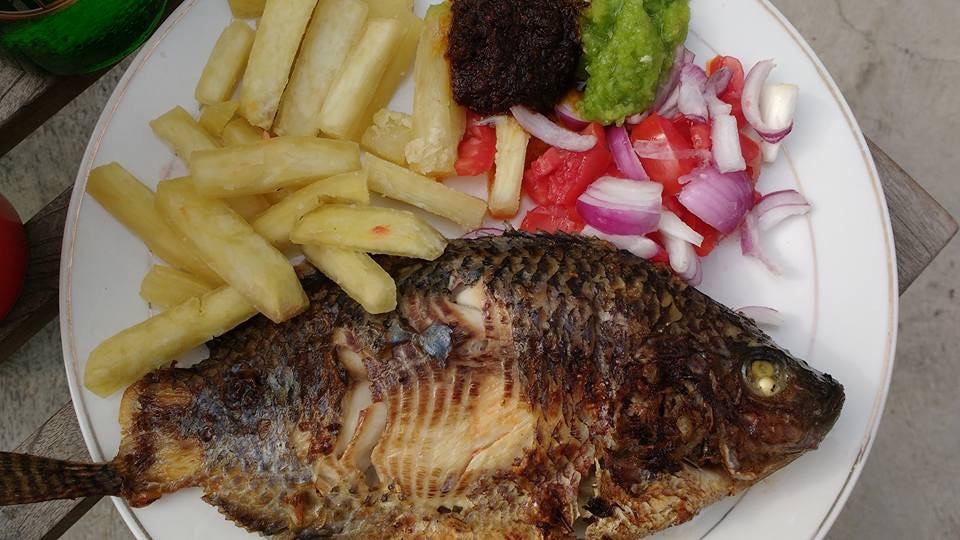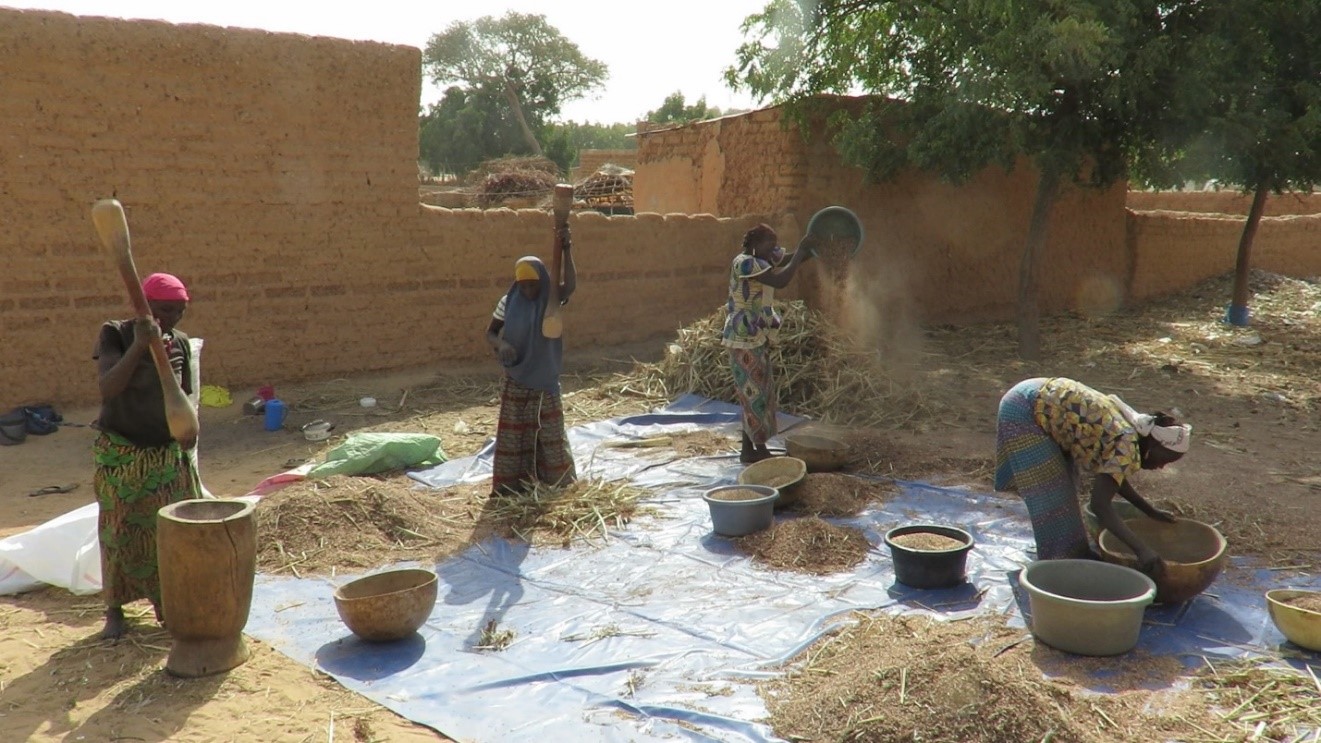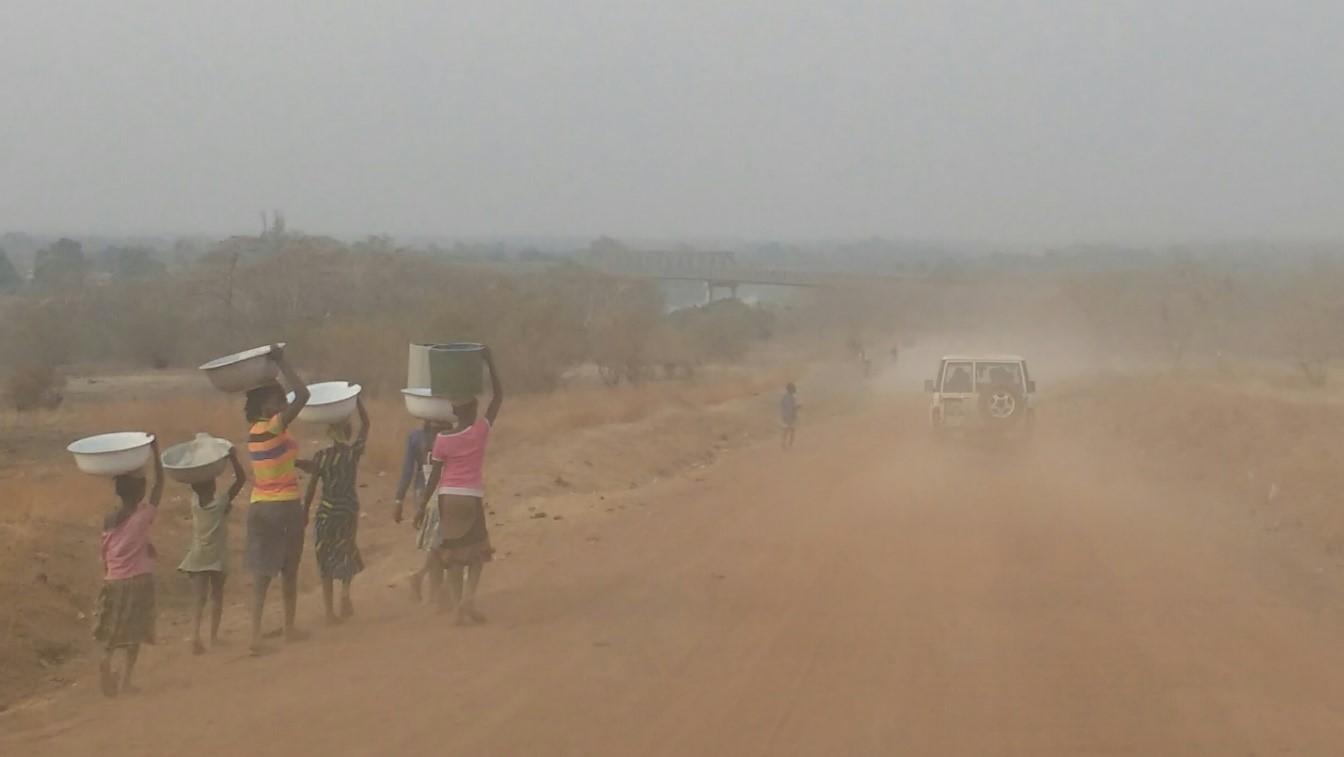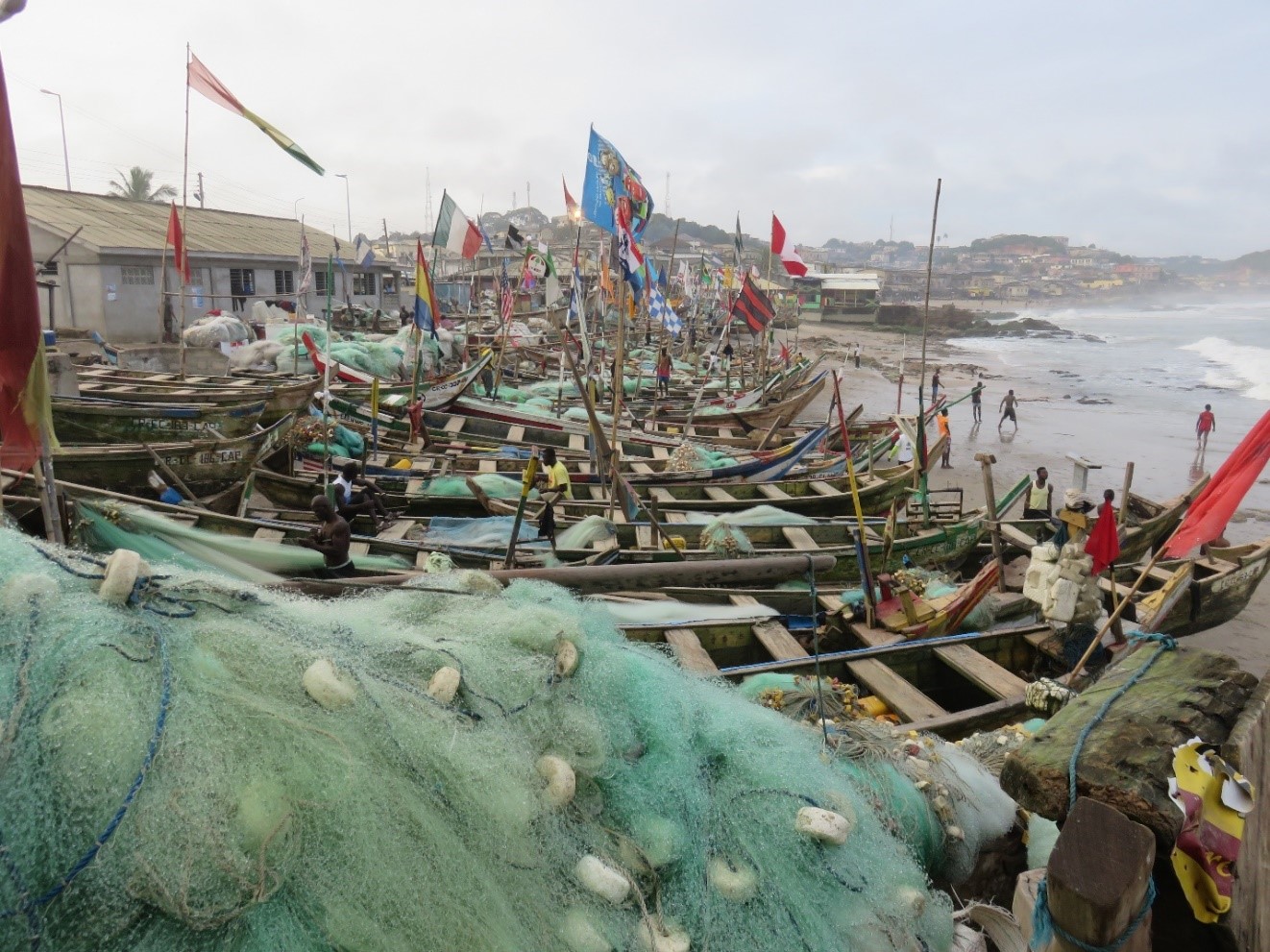A Letter from Joshua Heikkila, serving as Regional Liaison for West Africa, based in Ghana
May 2019
Write to Josh Heikkila
Individuals: Give online to E200353 for Josh Heikkila’s sending and support
Congregations: Give to D507520 for Josh Heikkila’s sending and support
Churches are asked to send donations through your congregation’s normal receiving site (this is usually your presbytery).
When they came ashore, they saw a charcoal fire, with fish upon it, and bread … and Jesus said to them, come let’s eat. None of the disciples dared ask him, “Who are you,” because they knew it was the Lord. Jesus came and took the bread and gave it to them, and he did the same with the fish. John 21:9, 12-13
In an average week in Ghana, I must consume fish on at least four or five different occasions, sometimes more. Tuna, salmon, tilapia, and snapper — whether fried, grilled, or cooked in soup — are an integral part of the diet in this part of the world. I think that’s why I find so interesting the Biblical stories of Jesus eating fish.
In the Gospel of Luke, when Jesus appeared to his disciples after his resurrection, he showed them his hands and feet, and he immediately asked them if they had anything for him to eat. The disciples gave Jesus some broiled fish, which the Bible explains he took and ate in their presence. Then he spoke about the meaning of his life, death, and resurrection.
Broiled Fish. I never thought much about Jesus eating broiled fish until last year after Easter, when I was attending church in Togo and heard this passage read in worship. In the Ewe language Bible, the disciples give Jesus kalãmi to eat. Kalãmi — a dish familiar to anyone in the Ewe areas of Ghana and Togo — is a common meal of fish fried in oil.
In the Twi language Bible, the word used in place of broiled fish is “apataa.” But this connotes a very different meal from the fried fish of the Ewe people. Apataa is more like tilapia cooked on a grill, perhaps marinated in a sauce of pepper and ginger. Grilled tilapia — what could be a more well-loved dish in Ghana, especially when shared with family and friends!
In the Gospel of John, the other time Jesus eats fish with his disciples, they get out from a boat on the shores of Lake Galilee, and a charcoal fire with fish and bread is waiting for them. In this passage of scripture, what Jesus finally says to his disciples is quite striking to me: “Come let’s eat.”
In the Ewe language Bible, Jesus says to his disciples, “va miɖunu” — come let’s eat. Anytime you sit down to dine in Ewe-speaking areas, this is an invitation you extend to everyone around you before starting to eat as a sign of hospitality and invitation. The words Jesus said to those around him, “come let’s eat,” are the very same words people say to each other today.I think the familiarity of these Biblical images — eating fish and inviting others to join and eat — helps Jesus come to life for people in West Africa who are listening to scripture. What Jesus said and did, people will explain to you, they still say and do to this day. As a result, scripture touches people’s lives and speaks to them in ways that resonate deeply.
I sometimes think we in the United States, in contrast to people in West Africa, have a much greater struggle connecting with scripture because our daily lives are so different from what we observe in the Bible. The story of Jesus eating fish with his friends — how could this be told in a way that enlivens it for the American context? Jesus was hungry, so his friends warmed up some leftover fish sticks for him to munch on?
If we make scripture too familiar, it seems we can rob it of the seriousness we want it to have. Jesus might seem too ordinary and too much like us. But if we maintain the formality of language, Jesus appears rather distant and irrelevant for our daily lives. This tension with which we encounter scripture in the American context often feels like it doesn’t exist in West Africa.
Anytime I travel to the United States to speak about my life and work in the region, I consistently tell people how scripture comes alive in places like Ghana. Moving around the country, you can see women and children gathered at wells collecting water to carry home; fishermen in boats, on the shores of lakes, rivers, and the ocean mending their nets after a long day on the water; women pounding their harvest with pestle and mortar, freeing seed from husk so the wind can be used to separate grain from chaff.
The proverbs, parables, and experiences of Jesus make sense to West Africans. The way Jesus taught, fed, and healed the people around him continues to teach, feed, and heal West Africans today.
For me, one of the most important things that happens when American Presbyterians engage with our brothers and sisters in West Africa is the opportunity for learning. For those of us who are far removed from an agrarian and communal lifestyle, engaging with West African partners can help bring the Jesus of the Bible to life once again.
At the same time, West Africa is changing rapidly. In the years ahead, as more and more people migrate to cities, the urban population will begin to outnumber the rural. This presents a challenge for our partners in the region, whose ministry has been profoundly shaped by the rural setting. We can also share with them the challenges our society has faced, and how the church is responding.
In this season after Easter, I want to thank you again for your prayers and support, which enable us in the Presbyterian Church (U.S.A.) to engage with our partners in West Africa. I hope that I can encourage us to learn from one another how to be better disciples of Jesus, and that this helps us all to become a church more overflowing with Christ’s light and love.
Thank you,
Josh
![]() You may freely reuse and distribute this article in its entirety for non-commercial purposes in any medium. Please include author attribution, photography credits, and a link to the original article. This work is licensed under a Creative Commons Attribution-NonCommercial-NoDeratives 4.0 International License.
You may freely reuse and distribute this article in its entirety for non-commercial purposes in any medium. Please include author attribution, photography credits, and a link to the original article. This work is licensed under a Creative Commons Attribution-NonCommercial-NoDeratives 4.0 International License.



